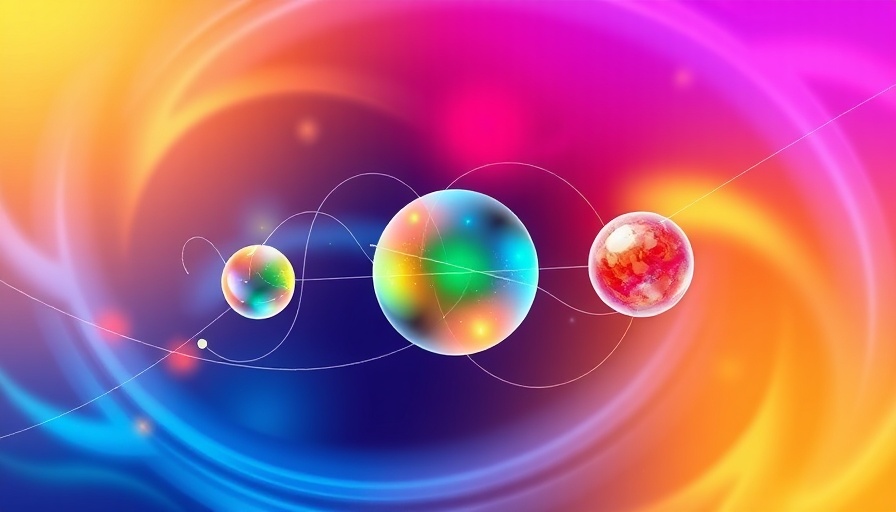
A Breakthrough Discovery in Quantum Physics
In a remarkable advancement in quantum science, researchers have leveraged artificial intelligence (AI) to streamline the process of forming quantum entanglement—a phenomenon described by Einstein as 'spooky action at a distance.' This innovation signifies a step closer to the realization of quantum technologies, promising improvements in quantum computing and secure communications. The study, published in the journal Physical Review Letters on December 2, 2024, outlines how scientists utilized the AI tool named PyTheus to simplify an essential aspect of quantum mechanics that has long puzzled physicists.
The Role of AI in Quantum Mechanics
Quantum entanglement normally requires intricate setups involving multiple entangled particle pairs, followed by specific measurements that can disrupt the integrity of the quantum state. Traditionally, this complexity has made practical applications challenging. However, researchers trained a neural network on extensive experimental data to examine various conditions under which entanglement could manifest. Remarkably, this AI-based approach continuously suggested simpler pathways than established protocols, illustrating AI's potential to revolutionize experimental physics.
The AI Revolution in Quantum Discoveries
The findings led to the revelation that the paths of photons could become indistinguishable, resulting in entanglement under certain conditions. This was a breakthrough primarily because traditional methods are resource-intensive and often cumbersome. The AI proposed an innovative mechanism that allowed scientists to set up experiments where detecting two photons ensured they emerged entangled, thus requiring fewer resources and enabling future applications in quantum communication networks.
Implications for the Quantum Internet
The development of simpler methods for creating quantum entanglement has profound implications for the future of quantum networks, which are key to secure online communication and data transfer. For example, industries heavily reliant on data security, like banking and cybersecurity, stand to gain significantly from these advancements. With entangled particles, any attempt to intercept information would disrupt the entangled state, making it an inherently secure form of communication. The AI-driven method could facilitate easier deployment of quantum infrastructure, ultimately paving the way for a robust quantum internet.
Looking Ahead: The Future of AI and Quantum Technology
This transformative breakthrough exemplifies the synergy between AI and quantum physics, opening the door to accelerated advancements in quantum computing and cryptography. AI's ability to explore unconventional paths in science is redefining the landscape of technological research and innovation. Future research is expected to further illuminate the applications of AI in discovering other complex quantum phenomena, thereby enhancing our understanding and usability of quantum technologies.
Conclusion: The Promise of AI in Quantum Science
The application of AI in achieving quantum entanglement highlights a pivotal moment in both artificial intelligence and quantum research. As we advance towards a future where the quantum internet is a reality, the integration of AI will be crucial in unlocking the full potential of quantum technologies. This melding of ideas not only propels scientific understanding but also promises to reshape the way we connect, communicate, and secure our information globally. As we continue to explore this exciting frontier, the collaborative power of AI and quantum physics may very well lead to the next major revolution in technology.
 Add Row
Add Row  Add
Add 




Write A Comment